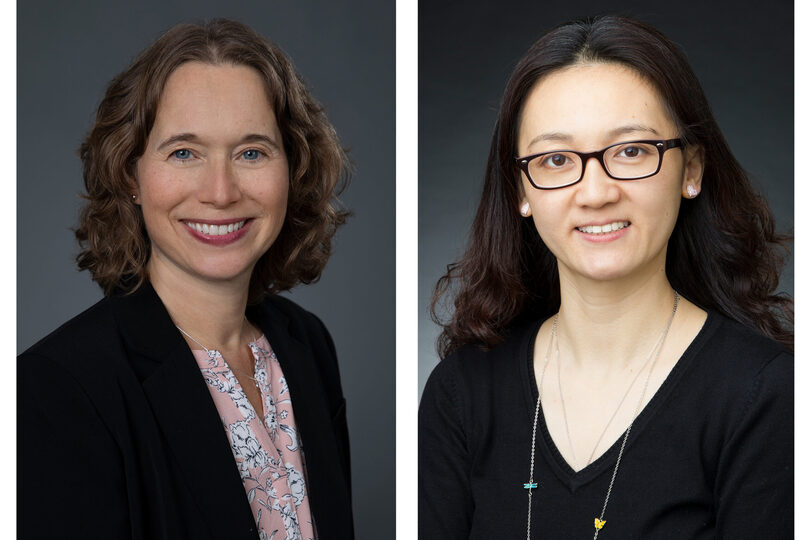5 SU professors named representatives for 2023 ACC Academic Leaders Network

Colleen Heflin and Hua Jiang are among five Syracuse University faculty members who in January were appointed to the 2023 cohort of the Academic Leaders Network program, comprised of 15 Atlantic Coast Conference universities. Photo Illustration by Meghan Hendricks | Photo Editor
Get the latest Syracuse news delivered right to your inbox.
Subscribe to our newsletter here.
Five Syracuse University professors from various academic disciplines will serve as representatives for the 2023 Academic Leaders Network program among 15 Atlantic Coast Conference member universities. SU will host one of the program’s three on-site conferences this year.
On Jan. 18, SU announced faculty members appointed to the 2023 cohort, including Kristen Barnes, Colleen Heflin, Hua Jiang, Brice Nordquist and Jennifer Stromer-Galley. The faculty members represent the College of Law, the College of Arts and Sciences, the Maxwell School of Citizenship and Public Affairs, the S.I. Newhouse School of Public Communications and the School of Information Studies at SU.
The ALN, which started up in 1897, aims to establish collaboration between universities and disciplines, and works to facilitate a more cohesive higher education landscape. Selected faculty are required to have one to two years in their present leadership position and be previously trained in foundational leadership, according to UNC’s ALN website.
For SU cohort members, the network means forming a vision beyond the university and promoting growth for students and faculty within SU.
SU appointee Colleen Heflin, who serves as associate dean, chair, and professor in the areas of public administration and international affairs, said she sees her selection to the program as an opportunity to improve her performance in her capacity at SU.
“Many people who are doing administration and leadership don’t actually want to change their careers and be administrators,” Heflin said. “It is really just about serving the institution with a better skill set so that we are more effective and meeting the needs of our students in creative, good teaching environments and supporting our faculty.”
The overarching goal of the program, Heflin said, is to make higher education a more beneficial place where students graduate with communication, organizational and leadership skills to take into their careers on top of academic knowledge.
From March 16-18, representatives from SU and the other ACC schools will gather for the first conference on the UNC campus, as well as from June 15-17 at SU and Nov. 2-4 at Duke University. Jennifer Stromer-Galley, an SU cohort member who works in academic and faculty affairs, emphasized the value of the conferences’ ability to provide “social support” for administrators.
“Being able to meet other people who have been in a leadership position or are still in a leadership position, but have more experience at it — they’ve got things and wisdom to share,” said Stromer-Galley, who is also director of diversity, equity, inclusion and accessibility at SU’s iSchool.
The network also presents an opportunity to set students up with a constructive culture around academics, said Hua Jiang, associate dean of academic affairs and associate professor of public relations in Newhouse.
“We should contribute to their learning while they are still on campus. We should even contribute to their future career development after they graduate from the university, so it should be a long-term plan,” Jiang said.
Participating in the ACC network is a reminder of the demands of adaptability and growth for leaders, Jiang said. She emphasized the importance for leaders of having a vision and finding the purpose behind their roles.
Jiang values that the network helps university leaders cultivate a “supportive, nurturing environment” overall, she said. For Stromer-Galley, that same work extends beyond just SU or any other institution, and means building a better future for young people in general.
“(We will bring) together people from across the ACC to really think through those challenges and figure out how we are going to help prepare the next generation of citizens and responsible adults to go and tackle the many, many crises that are going to face us in the months and years ahead,” Stromer-Galley said.





